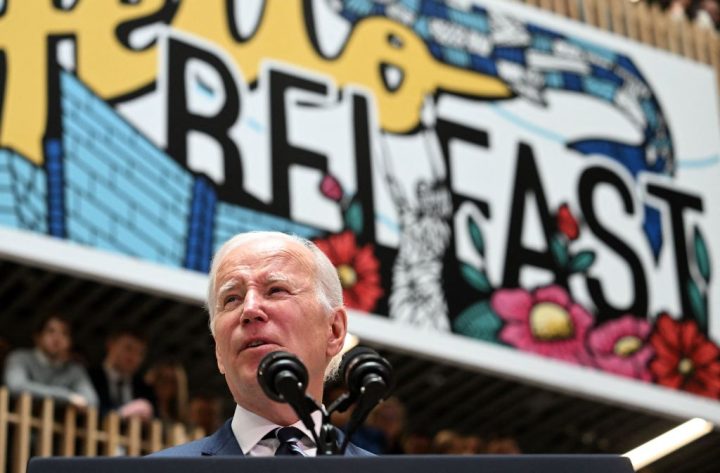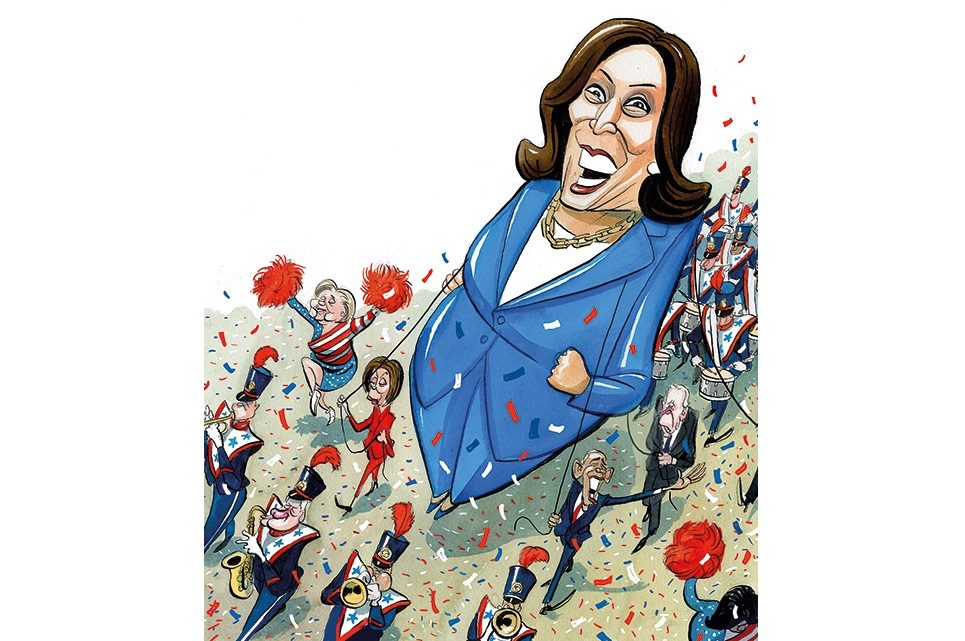If the relationship between the UK and the United States is allegedly special, the relationship between Northern Irish politicians and the US presidency is a whole different level. In the mythologized, Derry Girls telling of the Troubles, Bill Clinton turning on Belfast’s Christmas lights in 1995 heralded a transformative US intervention. One which allegedly managed more in delivering the Belfast Agreement than the hard yards trod by UK and Irish civil servants, the security forces and the more constructive figures involved in local politics.
How can Northern Irish politicians be encouraged to take some responsibility for providing stable, local government?
Since then, Northern Irish politicians have revelled in the purported glamour of a presidential head rub. Even DUP politicians, who have been decidedly cold towards Biden and today’s visit, have in the past relished the delights of a St. Patrick’s Day trip to the White House. In anticipation of Biden turning up to open Ulster University’s new campus before hightailing it across the border, the Ulster Unionist leader Doug Beattie even proclaimed in all seriousness that “the world’s media will be watching.”
Biden’s speech — which included the unsubtle carrot of US investment if the DUP return to power sharing — was predictably well received by all those who go weak at the knees for a US presidential intervention. What riches Northern Ireland could enjoy as a result of Uncle Sam’s largesse if only those unionists and their constitutional convictions weren’t in the way.
Much of the focus of this visit has been on Biden’s ability to be genuinely impartial in Northern Ireland. But that is to miss the point of the genuine underlying issue at play. The thrill of excitement caused by the mere prospect of American attention and a cash incentive to solve local political difficulty speaks to the deeply unserious way Northern Ireland’s political class operates.
Since the 1998 Belfast Agreement established the power-sharing executive, there has always been a tendency across communal lines to summon an outside actor to sort something out when it is beyond their capacity. From the former US special envoy Richard Haass chairing inter-party talks on flags and parades to Sinn Féin demanding the UK government legislate for some of its demands such as Irish language provisions, when Stormont stops working the flares calling for outside help invariably go up.
Many adherents of the “great hatred, little room” theory of Northern Irish politics will claim that history shows that when the going gets tough, an “impartial” outsider is needed to act as a corrective and get the show back on the road. The “Brits,” as the president is want to call them, and the Irish government have too much skin in the game to sort anything out according to that interpretation.
However, this has led to a situation where Stormont’s political and institutional culture and the mindset of Northern Irish politicians are infantilized. As a result, the post-1998 era has been characterized by staggering from one minute-to-midnight intervention to the next, largely at the initiative of a blow-in rather than any homegrown act of political invention or magnanimity.
How can Northern Irish politicians be weaned off this particularly damaging course? How can they be encouraged, slowly and surely, to take some responsibility for providing some form of stable, local government?
The answer is that the Belfast Agreement is, in some ways, the root of the problem. Mandatory coalition on sectarian and communal lines is harmful to serious, mature politics taking root. It is also compounded by the subsequent St. Andrews Agreement struck between the DUP and Sinn Féin which means the largest party at any election wins the title of first minister and all the reflected glory that goes with it.
As long as each side is structurally incentivized to appeal to its respective communal bloc at the expense of the other, devolution is fundamentally undermined. No wonder then that a summons for a referee happens more often than not. However, changing the nature of this power-sharing seemed a world away as, once again, Biden brought out the greatest hits to keep this particularly captive audience happy.
This article was originally published on The Spectator’s UK website.

























